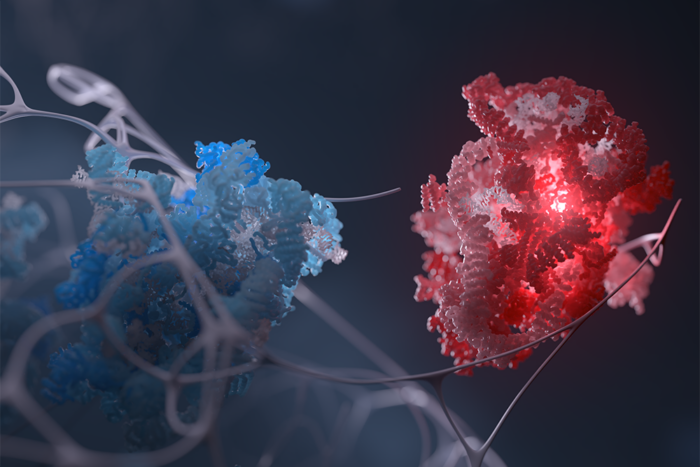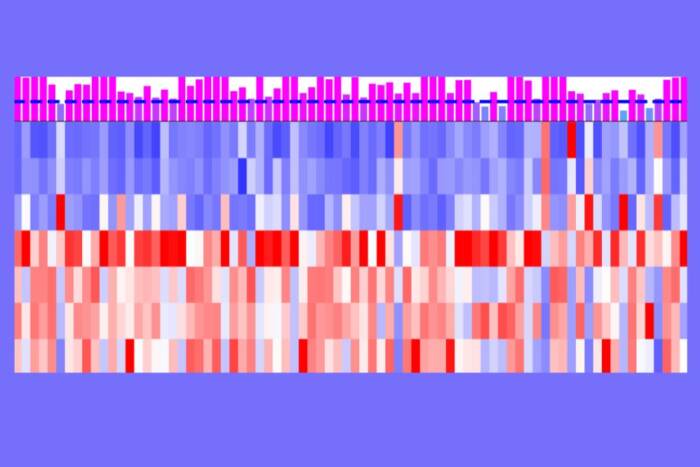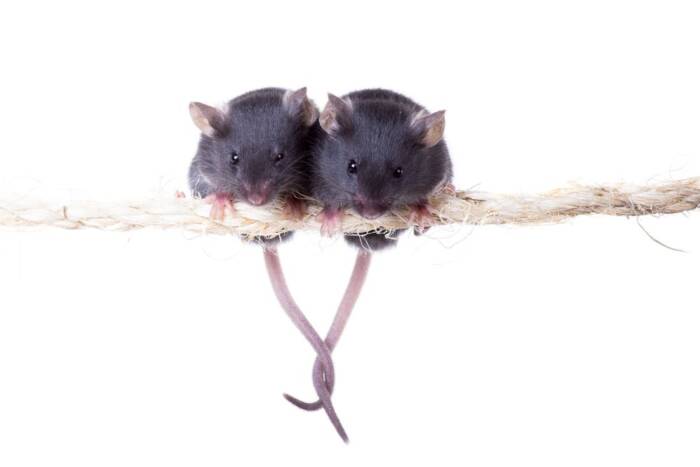Rockefeller University Names Sir Paul Nurse President
Nobel laureate, British cancer biology researcher elected ninth RU President
The Rockefeller University announced today that its Board of Trustees has elected Sir Paul Nurse, Ph.D., as the ninth President of the university.
Nurse currently is Chief Executive of Cancer Research UK, the world’s largest cancer research organization outside the U.S. He shared the 2001 Nobel Prize with Leland H. Hartwell and R. Timothy Hunt. The Nobel Prize in Physiology or Medicine recognized the three scientists for advancing scientific understanding about the biological process by which cells make copies of themselves both in health and in diseases such as cancer.
Because mistakes in this process, called the cell cycle, can lead to tumors and cancers, the research of Nurse and his colleagues may improve understanding about the origins of cancer. The research of Nurse, Hartwell and Hunt was hailed by the Nobel Foundation as revealing “new possibilities for cancer treatment.”
Richard B. Fisher, chairman of Rockefeller University’s Board of Trustees, noted that the Board unanimously elected Nurse to the position following an international search.
Fisher said, “Paul Nurse is the ideal leader for Rockefeller University. He is an eminent scientist with an exceptional record as the CEO of a major research institution.”
“Because of his commitment to innovative basic research as applied to human disease, Paul Nurse is a perfect match for Rockefeller University,” added Fisher. “Rockefeller has a tradition of groundbreaking biomedical research, and Paul Nurse is the outstanding choice to lead us into our next century of achievement.”
Fisher praised Thomas P. Sakmar, M.D., a Rockefeller professor and head of the university’s Laboratory of Molecular Biology and Biochemistry, who has served as Acting President since February 2002, when Arnold Levine, Ph.D., resigned.
“Tom Sakmar has been an exemplary leader in advancing the university’s position as a scientific research and educational institution,” said Fisher. “We are most grateful to Tom and look forward to his continuing contributions and those of his fellow university scientists to keep Rockefeller at the forefront of scientific inquiry.”
Established in 1901 as the first biomedical research institute in this country, Rockefeller has over 70 major laboratories in the biomedical sciences, chemistry, bioinformatics and physics, as well as an education program that trains graduate and postdoctoral students to become leaders in basic and clinical research.
Research at the university accelerates scientific understanding of the underlying mechanisms of such diseases as AIDS, heart disease, Alzheimer’s, cancer, diabetes, addiction, hepatitis C, tuberculosis, schizophrenia, obesity and visual disorders.
Nurse said, “I am very excited about joining Rockefeller University. Few universities in the world are as committed as is Rockefeller to the individual researcher and the individual graduate student, allowing each to follow the science wherever it leads.
“As difficult as it is to depart such an extraordinary institution as Cancer Research UK, the opportunity to lead Rockefeller is one that I could not turn down.”
Nurse, honored with a knighthood in Great Britain in 1999 for services to cancer research and cell biology, will join Rockefeller this fall.
About Paul Nurse:
Born in 1949 in Norwich, Great Britain, Nurse graduated from Birmingham University, where he majored in biology. In 1973, he received the Ph.D. in cell biology/biochemistry at the University of East Anglia.
After completing postdoctoral studies at universities in Bern, Switzerland; Edinburgh, Scotland; and Sussex, Great Britain, Nurse joined the Imperial Cancer Research Fund (ICRF) in 1984. For the next four years, he headed ICRF’s cell cycle control laboratory.
In 1988, he joined the University of Oxford to chair its department of microbiology. Five years later, he returned to ICRF as its Director of Research. In 1996, he was promoted to Director General. Last year, he was appointed Chief Executive of Cancer Research UK, which was formed from the merger of ICRF and the Cancer Research Campaign.
At Cancer Research UK, Nurse currently directs programs in research and public education involving 3,500 scientists and other professional and support staff. He also continues to head the cell cycle laboratory at the organization’s London Research Institute.
Nurse and his wife, Anne, whom he met at Birmingham University, have two daughters, Sarah and Emily. Nurse is an avid motorcyclist and glider and power pilot, with strong personal interests in astronomy, bird watching and natural history.
Research:
Nurse’s basic research focuses on the molecular machinery that drives cell division. Through this process, also called the cell cycle, cells copy themselves and multiply to form complex organisms. The cell cycle is crucial to survival, because the human body consistently must replenish many of its trillions of cells. Each new cell is a product of the cell cycle.
Among Nurse’s extraordinary research accomplishments was the identification of corresponding genes for a key regulator of the cell cycle in both yeast and human cells. Nurse’s discovery of the regulator molecule, called CDK (cyclin dependent kinase), in cells of both organisms revealed that CDK is essential to life in both simple and complex organisms, and that it was conserved over hundreds of millions of years of evolution.
“The way in which the cell cycle is controlled is basically the same in all living things,” Nurse said.
Scientists subsequently have identified half a dozen different CDK molecules in human cells and have found that higher than normal levels of CDK molecules characterize some human tumors such as breast cancer.
Honors and awards:
In addition to the Nobel Prize, Nurse has received the Albert Lasker Award for Basic Medical Research, General Motors Cancer Research Foundation Alfred P. Sloan Jr. Prize & Medal, Royal Society Wellcome and Royal Medals (U.K.), Pezcoller Award (Italy), Rosenstiel Award and Medal, Heineken Prize (Netherlands), Jimenez Diaz Medal (Spain), Jeantet Prize (Switzerland) and the Gairdner Foundation International Award (Canada).
A fellow of the Royal Society, Nurse is a member of the Council for Science and Technology, which advises the Prime Minister and the Cabinet of Great Britain. He also is a member of the European Molecular Biology Organization (EMBO) and the Academia Europaea.
In 1995, he was elected a foreign associate of the U.S. National Academy of Sciences, and in 1998, was a founding member of the U.K. Academy of Medical Sciences. He was awarded the Legion d’Honneur (France) in 2002.
About Rockefeller University:
Founded by John D. Rockefeller in 1901, The Rockefeller University was this nation’s first biomedical research institution.
Among the research accomplishments of Rockefeller scientists are: discovering that DNA is the basic material of heredity; developing methadone maintenance for people addicted to heroin; devising the AIDS “cocktail” drug therapy; and identifying an enzyme that destroys anthrax microbes, providing a potential new treatment for people infected with the deadly bacteria.
With the addition of President-elect Nurse, a total of 22 scientists associated with the university have received the Nobel Prize in physiology/medicine or chemistry, and 18 scientists associated with the university have been honored with the Lasker Award.
Five Rockefeller University scientists have been named MacArthur Fellows, and 11 have garnered the National Medal of Science. More than a third of the faculty are elected members of the National Academy of Sciences.
Rockefeller University’s campus community of 1,600 includes 275 basic research and clinical faculty, 300 postdoctoral trainees, 170 graduate students and 850 support staff.


